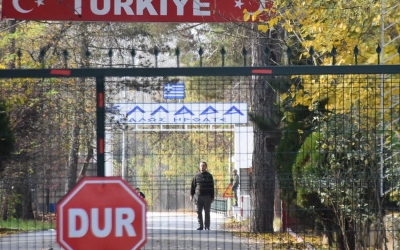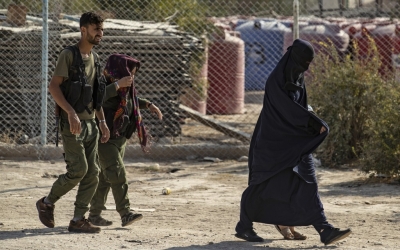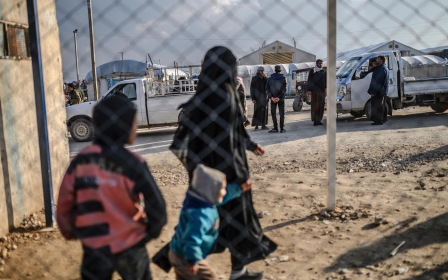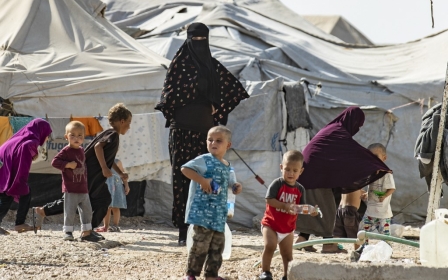Evidence is everything: How US is tackling return of Islamic State fighters
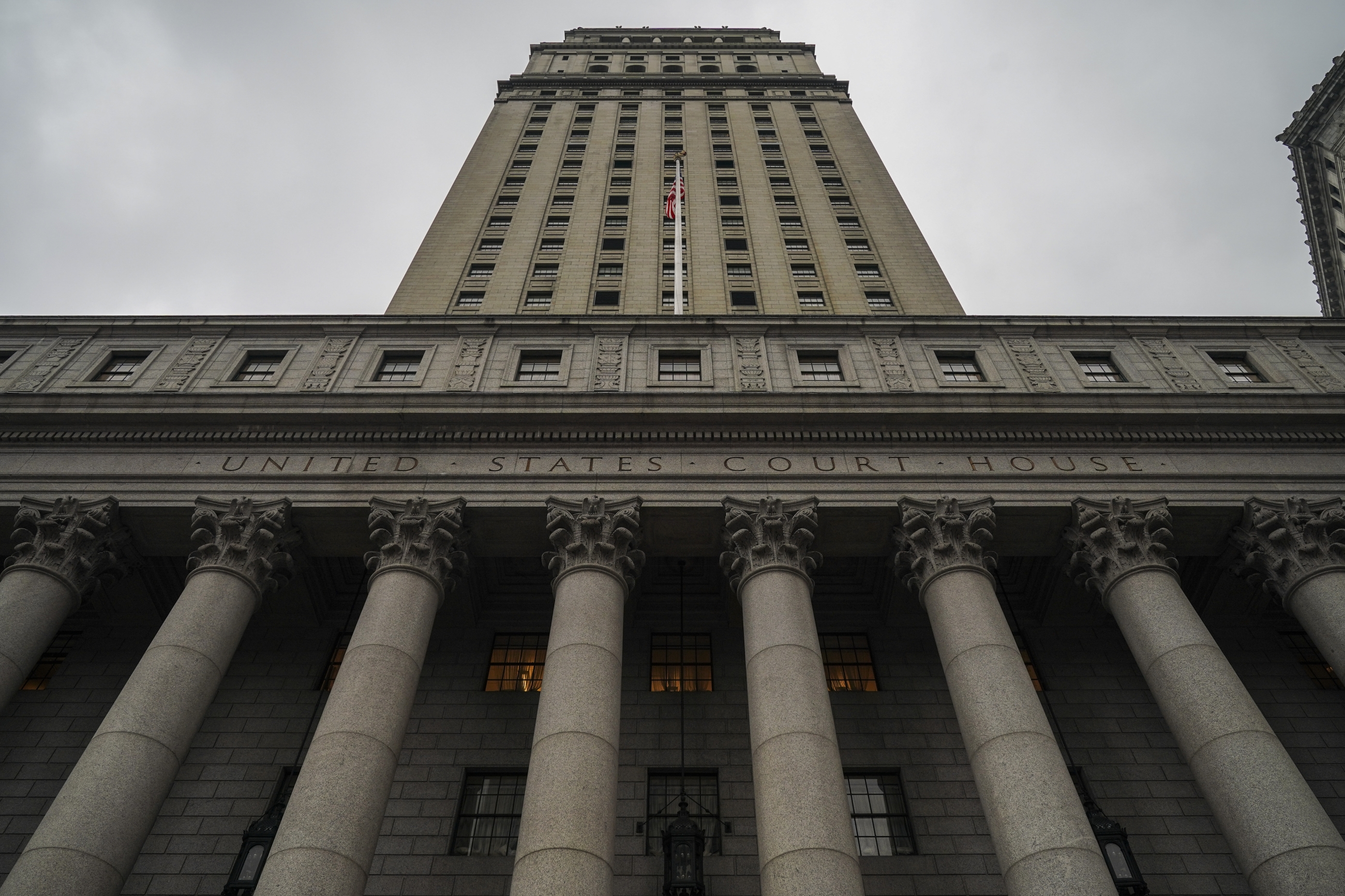
As northern Syria falls into disarray following Turkey's offensive, which began last month, the fate of thousands of foreigners in the region affiliated with the Islamic State (IS) group has become an increasingly worrisome issue for governments around the world.
As the United States tries to figure out how to handle the situation, a large part of the burden falls on the shoulders of prosecutors struggling to build cases for crimes committed thousands of kilometres away, in one of the most unstable countries on earth.
The US has been hesitant to repatriate and prosecute Americans who have been captured after joining IS, but experts say, for the most part, it comes down to the evidence available.
'Politicians are only worried about today. Even if the long term risk is greater, they're out of office by then - what do they care'
-Eric Rosand, former State Department official
"It's not consistent across the board - some are returning, some aren't - but I think in the cases where returns happen, it's often because the Department of Justice thinks there's a prosecutable case," said Eric Rosand, former senior counterterrorism official in the Obama administration's State Department.
Last week, a US citizen identified as 39-year-old Mohammad Darwis B. was sent back to the United States amid international pressure.
New MEE newsletter: Jerusalem Dispatch
Sign up to get the latest insights and analysis on Israel-Palestine, alongside Turkey Unpacked and other MEE newsletters
Turkey, which says it is holding as many as 1,200 foreign fighters in prison, initially tried to get the US to repatriate Darwis, only to be denied.
Ankara then tried to deport the man to Greece, which also refused to accept him, leaving him stuck in a no-man's land for five days before the US eventually conceded and allowed him to return.
What has happened to Darwis in the week since is not known, because the US government has been less than transparent about his case and other similar ones.
The US Department of Justice did not return Middle East Eye's request for comment on the issue.
Jason Blazakis, former director of the State Department's Counterterrorism Finance and Designations Office, told MEE that Darwis is likely being held in federal custody while the Justice Department assesses his case.
"They're probably going through law enforcement, intelligence and social media accounts related to this individual - and this is true about anybody related to [IS] - and then they'll try and determine how they evaluate that information," said Blazakis, who is now the director of the Center on Terrorism, Extremism, and Counterterrorism at Middlebury College Institute.
Any evidence in his case obtained by Turkey will have a hard time standing up in court, as it would be difficult to prove that the information was gathered in accordance to US jurisprudence standards, Blazakis said.
Unlike suspected serious offenders captured during the US invasions of Iraq and Afghanistan - who were sent to Guantanamo Bay military base for war court trials - the process for prosecuting American citizens who joined IS is being handled in federal courts on US soil.
Blazakis said it is "very likely" that Darwis and other American IS fighters will be prosecuted in the US District Courts for the Southern District of New York, Eastern District of New York or Washington DC.
The pre-trial and trial processes will probably be handled the same way as any other criminal case tried in US federal courts, Blazakis said.
If they have sufficient evidence, the Justice Department will most likely prosecute Darwis under the Immigration Nationality Act Section 2339-B for Providing Material Support to the Islamic State group, Blazakis said.
The act states that it is illegal for anyone subject to US jurisdiction "to knowingly provide material support to a foreign terrorist organisation that has been designated by the secretary of state".
'Come back to haunt us'
If the government cannot come up with sufficient evidence to prosecute, things may become more complicated.
"They're going to release the individual if they can't put together a credible case because they have no other basis to hold him, and it's not very likely that the United States is going to put someone like that in Guantanamo Bay," Blazakis said.
If someone accused of belonging to a terrorist group is released because of a lack of evidence, the Justice Department may work out an agreement among lawyers that allows for legal government surveillance of the person in question, Blazakis said.
In the meantime, the UN's International, Impartial and Independent Mechanism (IIIM), established in 2016, is working to gather evidence and assist in the investigation and prosecution of people who have committed crimes under International Law in Syria since 2011.
"Even if they can't be prosecuted because there's not enough evidence, there have to be other programmes in place to support their rehabilitation and reintegration into society, absent of which we'd just be increasing the likelihood that these individuals will continue further down the path of radicalising," said Rosand, who is also director of The Prevention Project: Organizing Against Violent Extremism, a global anti-extremism coalition.
"And that could potentially come back to haunt us."
Rosand said it comes down to two choices: return someone who cannot be prosecuted because of a lack of evidence, and maybe one of them commits a knife or car-ramming attack, or deny them entry and risk further radicalisation that may eventually lead to a serious terrorist attack that kills scores of innocent people in some Western city.
"Those are the options, but politicians are only worried about today. Even if the long-term risk is greater, they're out of office by then, what do they care," Rosand told MEE.
'It's not a crime to have bad judgment'
In other cases, some of the returning citizens may not have committed crimes and may just need help and support to overcome mental or personal issues that led them to travel to Iraq or Syria to, for example, marry an IS fighter.
In June, eight Americans - two women and six children - who had been captured by Kurdish forces in Syria were returned to the US. Their case was the first publicly announced repatriations of US citizens affiliated with IS.
What happened to those women and children since then is unclear, but no public prosecution of the adults has yet taken place.
"It's not a crime to have bad judgment. We have to accept that some people made a mistake and as long as they weren't killing people or doing other horrible crimes. Just sort of being there shouldn't be an obstacle to coming back to the United States," said Benjamin Friedman, policy director at Defence Priorities and a lecturer at George Washington University.
"We don't need to throw everyone who made an outrageous, horrible decision about who they marry in jail," Friedman told MEE.
Even with the difficulty of prosecuting people for crimes committed halfway around the world, Friedman said the US has a responsibility to try.
"It's always a risk, when you put someone on trial even if you've got good evidence, you never know, they might be acquitted," Friedman said.
"But honestly, chances are most of them will be convicted with some evidence. The perhaps unfortunate reality is that juries are just not going to be very sympathetic, one presumes, when it comes to actual suspected [IS] fighters."
Middle East Eye delivers independent and unrivalled coverage and analysis of the Middle East, North Africa and beyond. To learn more about republishing this content and the associated fees, please fill out this form. More about MEE can be found here.


